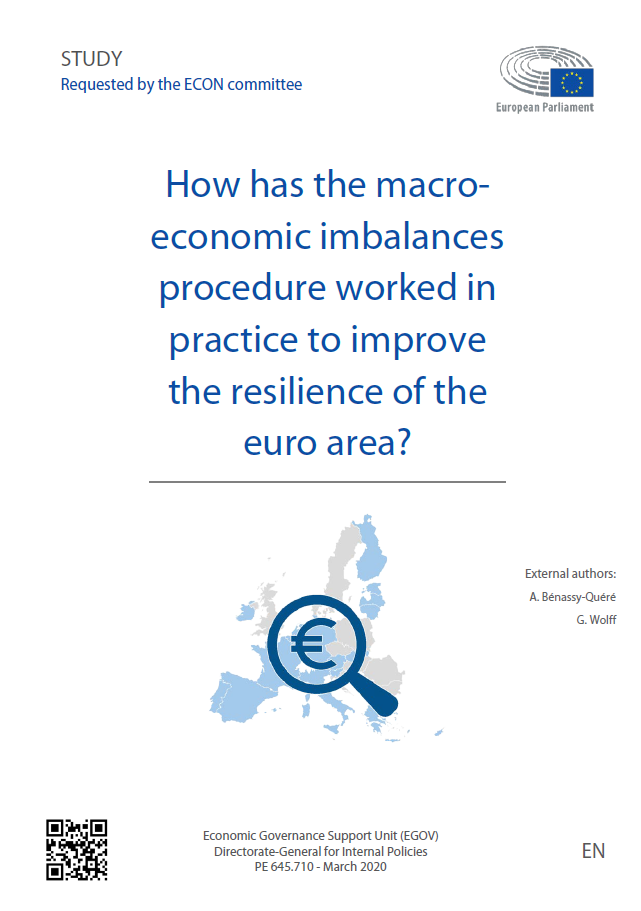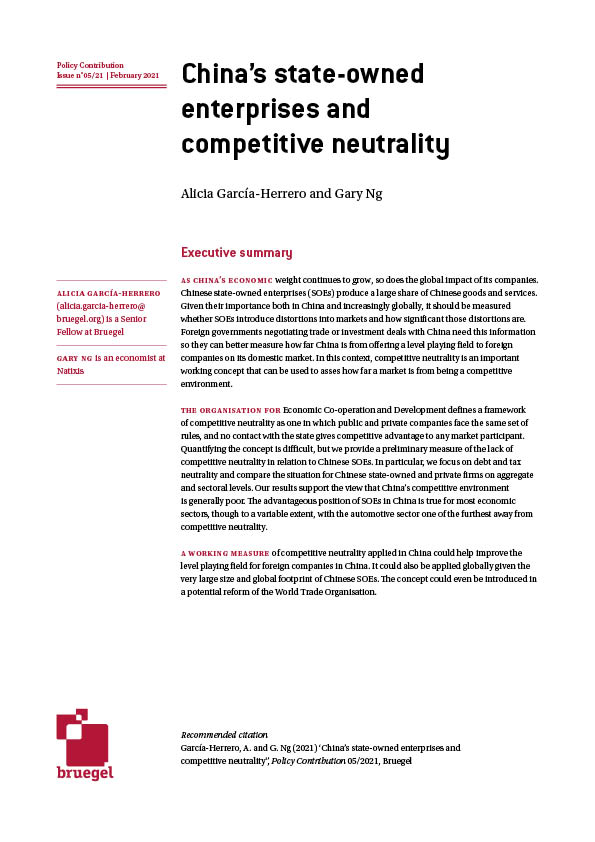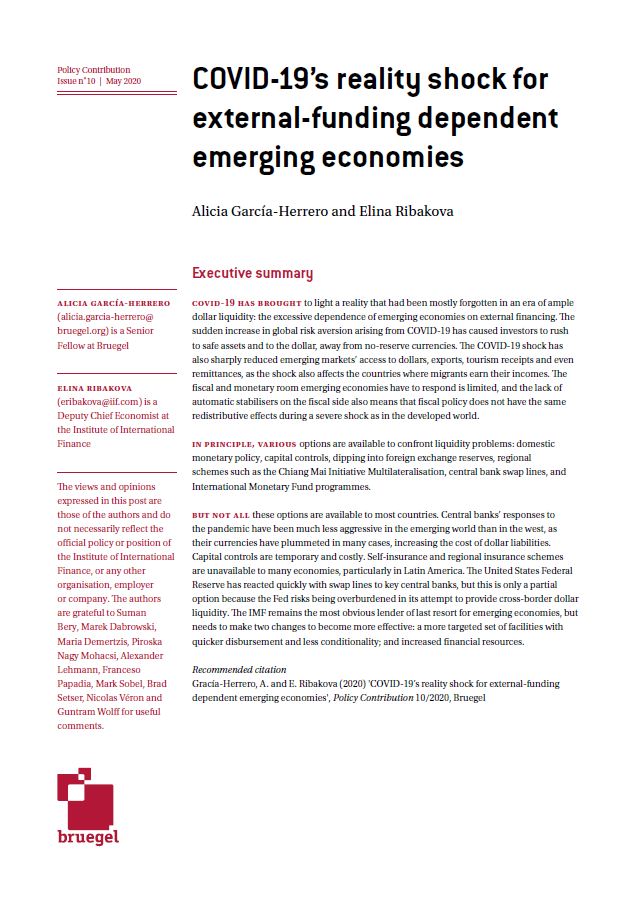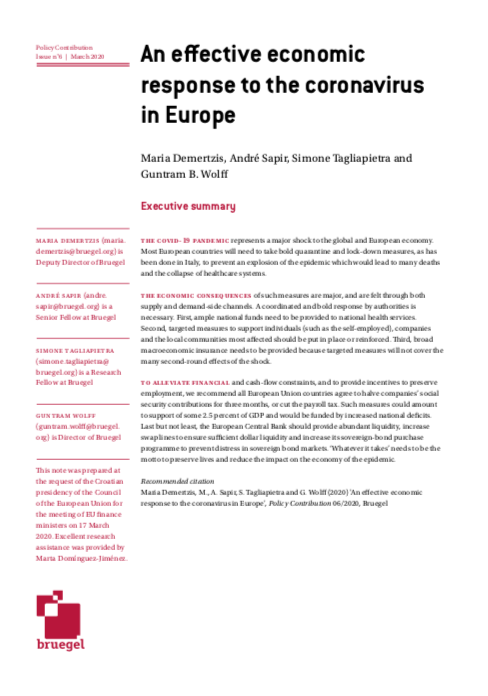External Publication
How has the macroeconomic imbalances procedure worked in practice to improve the resilience of the euro area?
This paper shows how the Macroeconomic Imbalances Procedure (MIP) could be streamlined and its underlying conceptual framework clarified. Implementation of the country-specific recommendations is low; their internal consistency is sometimes missing; despite past reforms, the MIP remains largely a countryby-country approach running the risk of aggravating the deflationary bias in the euro area. We recommend to streamline the scoreboard around a few meaningful indicators, involve national macro-prudential and productivity councils, better connect the various recommendations, simplify the language and further involve the Commission into national policy discussions. This document was prepared for the Economic Governance Support Unit at the request of the ECON Committee.
The Macroeconomic Imbalance Procedure (MIP) was introduced in 2011 as part of the ‘six-pack’ reform of economic governance. It aims to identify, prevent and address macroeconomic imbalances that could adversely affect economic stability in a particular EU country, the euro area, or the EU as a whole.
The empirical analysis provided in this paper, however, shows that:
- Implementation rate of the country-specific recommendations (CSRs) has been declining over time; although imbalances have clearly receded in the euro area and in the EU over 2013-2018, there is no apparent link with the implementation of the CSRs;
- Despite past reforms, the MIP keeps still largely a country-by-country approach, running the risk of contributing to a deflationary bias in the euro area;
- The MIP scoreboard could be simplified with little loss in terms of early-warning performance; some indicators need to be re-defined consistently with the objective of convergence within the euro area;
- The consistency among the CSRs and the recommendations made by the IMF and the OECD varies greatly across countries; the CSRs are less clear on the financial sector than the IMF is, and they are not always connected to the recommendations made by the ESRB;
- The CSRs sometimes lack internal consistency, especially for countries with high current accounts surplus and with respect to the connection with the recommendations to the euro area.
- National policy-makers and experts are often totally unaware of the entire European Semester process. Communication is often done in technical and administrative form – failing to trigger interest in national debates.
Recommendations
- Streamline the scoreboard around a few meaningful indicators; check that they are geared towards intra-euro area imbalances rather than performance vis-à-vis the rest of the world.
- In the recommendation to the euro area, include a section explaining the strategy to reduce imbalances, the contribution of each Member State being specified.
- Focus MIP-CSRs on policy actions that can have direct impact on imbalances. Involve national macroprudential authorities and national productivity councils; coordinate the timetable of the European semester with that of ESRB’s recommendations;
- Simplify the language and further involve the Commission into national policy discussions









